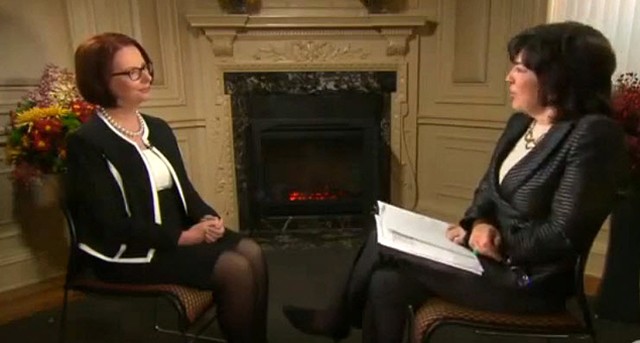In her first television interview since she lost her Prime Ministership, marriage equality was among the topics Julia Gillard has tackled in conversation with CNN host Christiane Amanpour.
“Some of your supporters say, why did you not back same-sex marriage?” Amanpour put to Gillard in the relaxed sit-down.
“The Human Rights Council has just come out to say that in the United States 2013 has been the gayest year with 16 states approving gay marriage,” the interviewer pointed out. “Why did you not publicly support same-sex marriage?”
Like she’s done before, our former Prime Minister explained her position by harking back to her university days, when marriage wasn’t the be-all-and-end-all.
“I recognise that I had perhaps an eccentric view.”
“I’ve made up my mind about my own personal position,” she added, “and when I was in politics I made sure that it was my position, not my political party’s position.
“This is a debate with a big force for change now,” she said. “I recognise that I had perhaps an eccentric view in some ways. I reasoned my way through to my own position through my own life experiences. And I didn’t want to impose it on anyone else.”
This will end up being a conscience vote across the parliament, she predicts. “And it’s only in those circumstances that there’s any real prospect for change.”
Amanpour also mentioned rumours that her partner Tim might be gay, which appear to solely be based on stereotypes around the fact that he works as a hairdresser.
“We did have ridiculous and painful shocking things said about our relationship,” Gillard responded. “I think the fact that I was the first woman to do the job, that our marriage was not the stereotypical marriage relationship, that it left it open to some of that nastiness and unpleasant carry on.”
She also said she has now quit politics for good and would not consider a return to political life.
Watch CNN’s interview with Julia Gillard below. The marriage questions come 8 minutes into the clip.
Author: Matt Akersten
Publication same same
Date: 21 November 2013
See original article here

